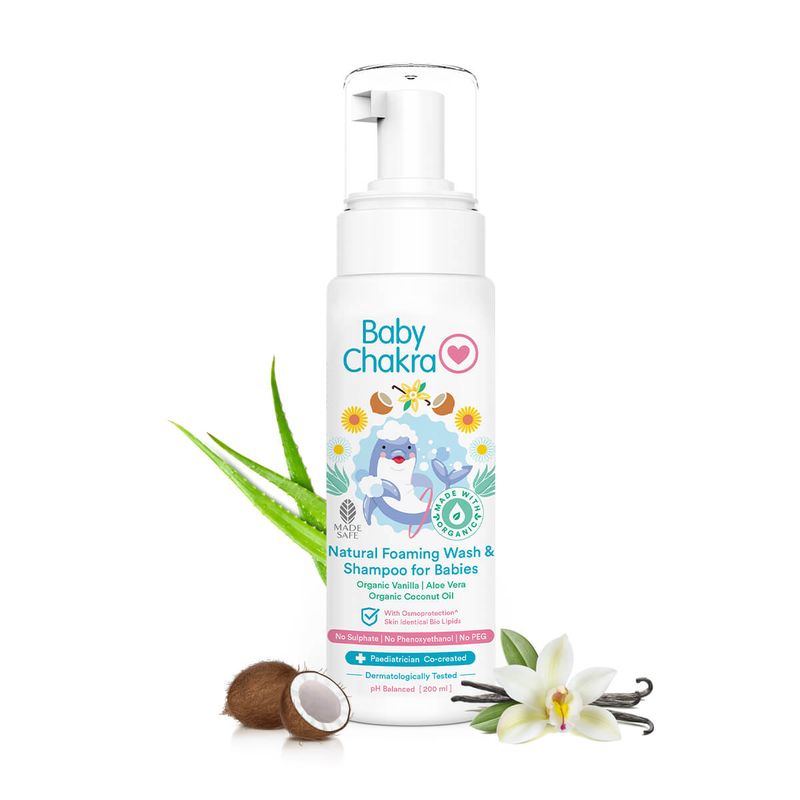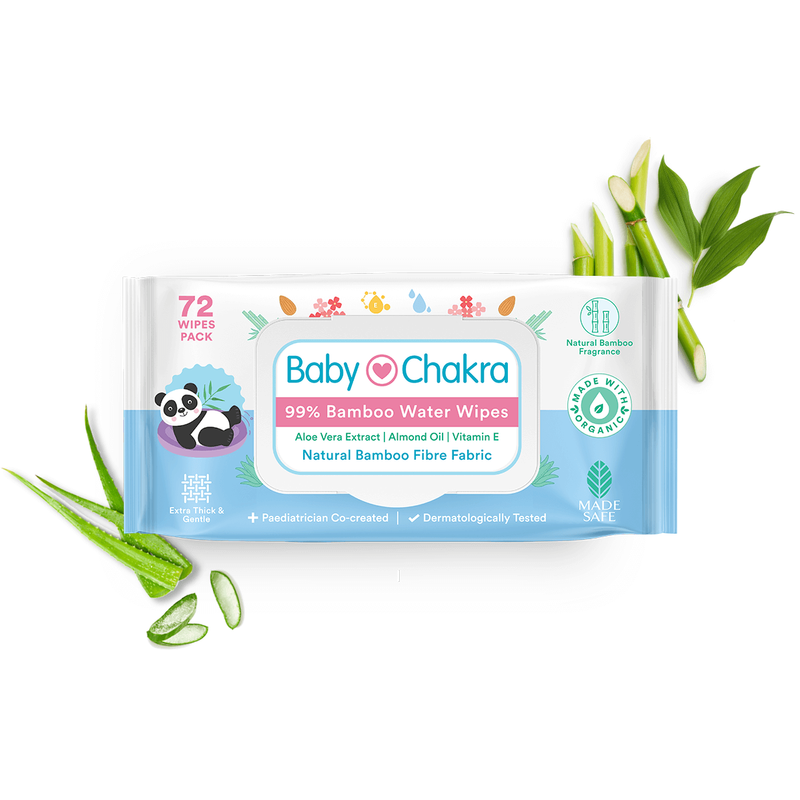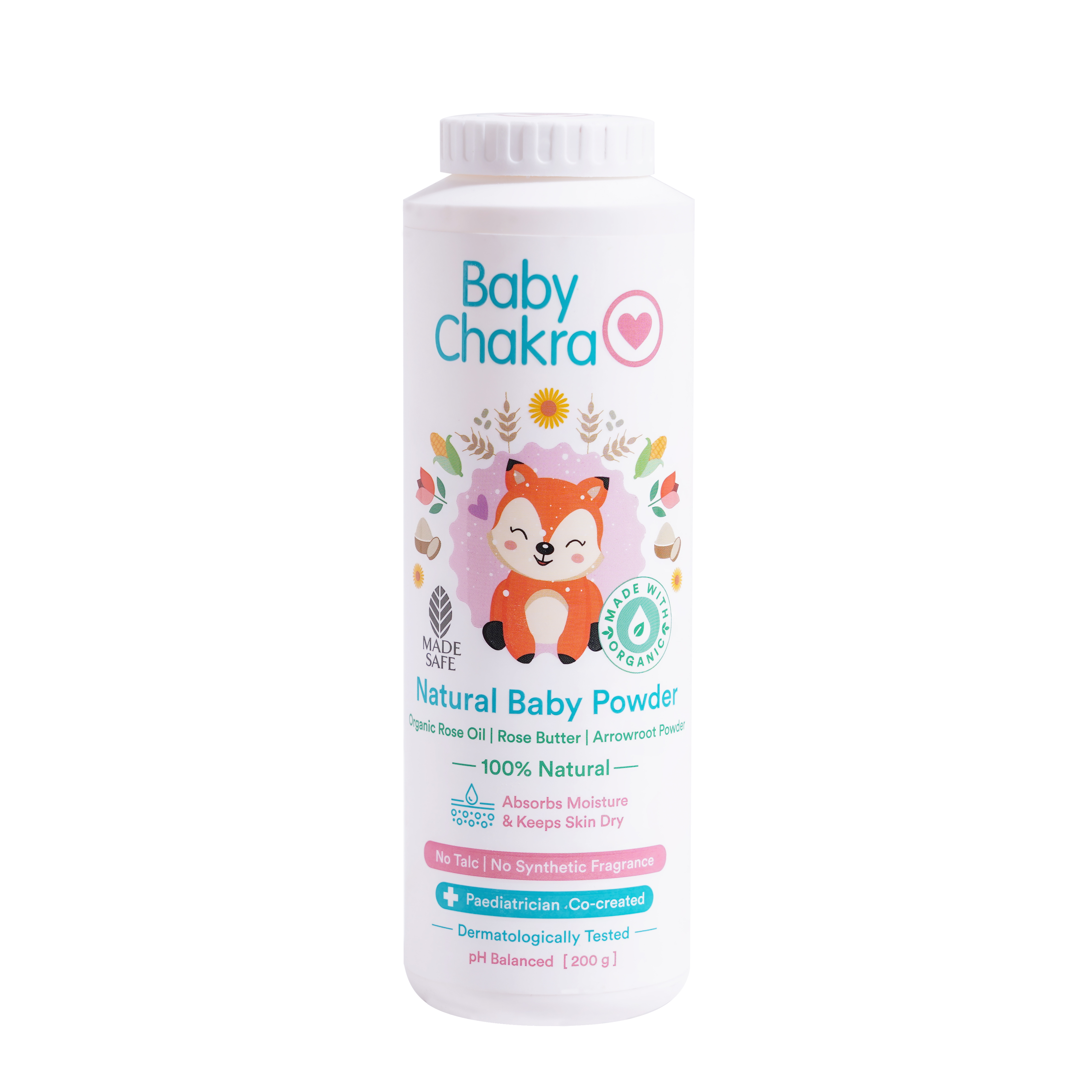
How To Choose Eco-friendly Baby Products
7 Oct 2022 | 5 min Read
Reema Shah
Author | 740 Articles
There are a lot of brands that use words such as “soft” or “natural” on their packaging and the rise of eco-friendly baby products is on trend in the baby industry. However, many of these products intended for baby’s skincare are often full of chemicals and are not always suitable for their delicate skin. Some of these products may cause allergies or irritations in babies. Hence, #LabelPadhoMoms and look for safe baby products with safe ingredients and labels.
What Are Eco-Friendly Baby Products?
Eco-friendly baby products are the ones that put the health of the planet, and your baby, at the top of their must-have criteria while designing and creating the products. These products use safe and durable materials, usually made from recycled materials or manufactured in a way that helps reduce the brand’s carbon footprint.
Eco-friendly products in the baby industry range from bathing, diapering and feeding to nursery, clothing and play. Since there is a rapid rise of more organic-tailored eco-friendly brands, there is no shortage of eco-friendly baby product options on the market.
Labels To Pick When Looking For Eco-Friendly Baby Products
Here are some certifications or labels that require products to meet certain standards for health, safety, and toxicity. Look out for these when you’re shopping for natural and safe baby products.
Made Safe
This is one of the most comprehensive designations on the market. Made Safe screens the baby’s products for heavy metals, flame retardants, carcinogens, high-risk pesticides, endocrine disruptors and many other toxins. Made Safe consists of a comprehensive Baby & Child product database. It also screens several other products like mattresses and cleaning products.
FDA Approved
An FDA-approved formula follows strict guidelines for ingredients when it comes to baby products and how they are stored to support a child’s healthy growth and development.
Made With USDA-Certified Ingredients
When a certain packaged product indicates they are “made with organic ingredients,” it indicates they contain at least 70% organically produced ingredients.
Safer Choice
This is a label given by the EPA to products whose ingredients have been evaluated by EPA scientists and have been deemed the safest for use.
Dermatologically Tested
While there is no legal definition of the term “dermatologically tested” when applied to a cosmetic product, it usually means that the product is “tested on the skin”. The tests need not be done by a doctor or dermatologist but may have to be checked later by a medically qualified person.

Organic Baby Care Products and Safe Ingredients
As the name suggests, these baby care products contain organic ingredients. Plus they are also better for the planet and are also better for your baby. Hence, they are suitable for the thin and sensitive skin of babies.
Organic baby care products’ ingredients are 100% safe for babies and for the environment. The products are free from microplastics, nanoparticles and GMOs. The products are formulated with biodegradable and natural ingredients. Hence, the baby’s skin is protected from hard chemicals and any potentially dangerous substances.
Which Harmful Chemicals Should You Avoid For Babies?
If you’re buying or using a baby product that lacks certification, it is better to be aware of the ingredients that can cause harm.
Here are some ingredients and substances to avoid.
Phenoxyethanol
According to research, phenoxyethanol is a common preservative that has been linked to skin irritations, eczema and allergic reactions like hives. It also negatively impacts your baby’s nervous system and should not be present in your baby’s products like wipes and oil as it can harm the little one once absorbed into the skin.
Artificial Fragrances
According to studies, exposure to artificial fragrances can possibly affect your baby’s nervous system and result in several health issues in babies including hormonal imbalance.
Hence, it is advisable to avoid baby products with artificial fragrances. They can be present in baby wipes, diaper rash cream, massage oil, sunscreen and other personal baby care products.
BPA Plastic
There have been over a thousand studies that have linked BPA exposure to a host of illnesses and conditions. These include hormone disruption, cancer and problems with liver and kidney function.
BPA is found in some tin cans, some plastic water bottles, plastic containers, highly processed food, bottle tops, sunglasses and most plastic food packaging. It can be commonly absorbed through the skin and mouth.
Phthalates
Exposure to phthalates has been linked to asthma, birth defects, early puberty and other problems. There are studies that mention that children’s immature metabolisms make them more prone to the effects of phthalates.
Phthalates can be found in baby products like diapers, lotions, toys, electronics, shampoos, and baby powders and many other things. Children and babies tend to absorb phthalates through the skin when they are present in body products. Plus they can also absorb them when chewing on toys that contain phthalates or when breathing in vinyl. Hence, parents must watch for ingredients like “fragrance” which is one common place where phthalates can hide.
When it comes to picking eco-friendly products, parents must read the label and look for the important certifications mentioned above. It is important that they pick safe baby products as the baby’s skin barrier is prone to allergies and infections.
Cover Image credit – Canva
A


Related Topics for you
Suggestions offered by doctors on BabyChakra are of advisory nature i.e., for educational and informational purposes only. Content posted on, created for, or compiled by BabyChakra is not intended or designed to replace your doctor's independent judgment about any symptom, condition, or the appropriateness or risks of a procedure or treatment for a given person.



